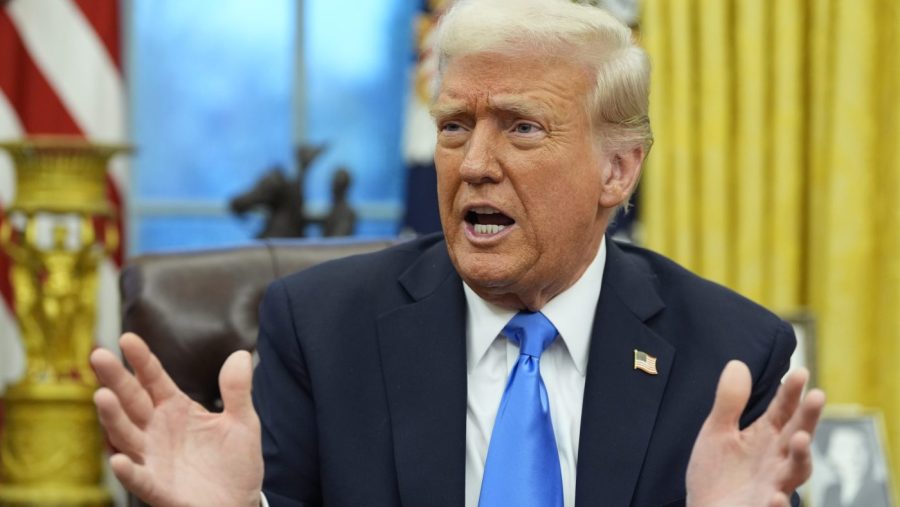The Associated Press (AP) has reported that one of its reporters was barred from attending an event in the Oval Office due to the news agency’s editorial policy regarding the naming of the Gulf of Mexico. This incident has sparked concerns about press freedom and the relationship between the media and the White House.
Key Points:
1. The AP reporter was blocked from attending an executive order signing in the Oval Office.
2. The White House’s decision was reportedly based on AP’s refusal to align its editorial standards with President Trump’s executive order renaming the Gulf of Mexico as the “Gulf of America.”
3. AP Executive Editor Julie Pace called the move “alarming” and stated that it “plainly violates the First Amendment.”
Background and Context:
President Donald Trump recently issued an executive order to rename the Gulf of Mexico as the “Gulf of America.” This decision has led to various reactions:
1. Google has agreed to honor the name change on its platforms, with different names displayed based on user location.
2. Mexican President Claudia Sheinbaum has urged Google to reconsider the change, citing international maritime law.
3. The renaming has implications for US-Mexico relations and raises questions about international naming conventions for geographical features.
Impact and Significance:
1. Press Freedom: The barring of an AP reporter from the White House raises concerns about press access and freedom of the press.
2. International Relations: The Gulf renaming and the subsequent media restrictions could potentially strain US-Mexico relations.
3. Editorial Independence: The incident highlights tensions between government policies and media organizations’ editorial standards.
Different Perspectives:
1. White House Stance: The administration appears to be pressuring media outlets to adopt its preferred terminology.
2. Media Response: AP and other news organizations are likely to view this as an infringement on press freedom and editorial independence.
3. International View: Mexico and potentially other countries may see this as an example of US unilateralism.
Historical Context:
This is not the first time tensions have arisen between the White House and media organizations. Previous administrations have had conflicts with the press, but barring reporters based on editorial policies is unusual and concerning to many observers.
Potential Long-term Implications:
1. Media-Government Relations: This incident could set a precedent for future interactions between the White House and news organizations.
2. International Naming Conventions: The unilateral renaming of an international body of water could lead to discussions about the process for changing geographical names.
3. Press Access: There may be increased scrutiny and debate over media access to White House events and information.
As this situation continues to develop, it will be important to monitor how other news organizations, international bodies, and the public respond to both the renaming of the Gulf and the restrictions placed on media access.









